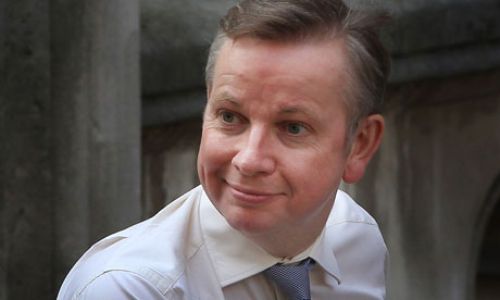|
Vince Cable also has application for core participant status to the
next stage of the inquiry rejected.
|
 |
|
Leveson said the ministers’
general interest in the inquiry was not
sufficient to grant them special access to
key documents. Photograph: Peter Macdiarmid/Getty
Images |
George Osborne and Michael Gove have been refused privileged access
to key evidence on the future of press regulation after
Lord Justice Leveson rejected their applications for
core participant status to the next stage of his
inquiry.
The chancellor and education secretary, as well as the business
secretary Vince Cable, had their applications for core
participant status turned down in a ruling published on
the inquiry website on Monday.
Leveson said the ministers' general interest in the inquiry was not
sufficient to grant them special access to key
documents.
This ruling came as core participant status was given to several
victims of press intrusion, including Gerry McCann, the
father of Madeleine, Bob Dowler, the father of Milly
Dowler, and the actor Hugh Grant.
Prime minister David Cameron, deputy prime minister Nick Clegg and
culture secretary Jeremy Hunt have also been granted
core participant status for the inquiry's fourth and
final stage.
The next module of the inquiry is focused on the future of press
regulation. Unlike previous modules, the inquiry will
publish proposals submitted by witnesses before they
give evidence. Core participants will still be given
advance sight of evidence to the inquiry – including
detailed proposals put forward by other parties – and
make representations on them. This phase of the inquiry
is due to begin in the second week of July.
Unlike regular witnesses, core participants are able to ask
questions of other witnesses and propose redactions and
corrections to sensitive written evidence submissions.
Cameron and seven other cabinet ministers were given the status for
the previous module of the inquiry – into relations
between politicians and the press – but Leveson said
that alone did not mean their core participant status
should be automatically extended.
"I see real advantage in whatever assistance can be provided by
those with responsibility for policy in the areas that
are the subject matter of module 4 not least because the
inquiry can be forewarned of practical issues which the
relevant ministries have considered and may or may not
have yet resolved in promulgated policy," the judge
said.
"That is not to say, however, that all the ministers who were
entitled to participate in module 3 are in the same
position."
He explained that Cameron, Clegg, Hunt, and the justice secretary
Ken Clarke were all "highly material" and policy
oversight that is relevant to press regulation.
Leveson added: "The secretary of state for business, innovation and
skills, the education secretary and the chancellor of
the exchequer were properly involved as core
participants in module 3 for different factual reasons;
what might be their general interest in the inquiry
(even enhanced by their cabinet responsibility for
agreeing policy) is, however, not sufficient, in the
exercise of my judgment and discretion, to justify
granting that status to them for this module. In their
cases, the applications are refused."
Leveson said proposed reforms to press regulations made by
witnesses will be placed in the public domain before
they are heard at the inquiry, allowing interested
parties the chance to comment on them in advance.
Other parties granted core participant status for module four of
the inquiry are: the Press Standards Board of Finance (PressBof),
the body chaired by Lord Black that funds the Press
Complaints Commission; Lord Prescott; Max Mosley; the
solicitor Mark Thomson; the Lib Dem and Hacked Off
campaigner Dr Evan Harris; and the pressure group Media
Standards Trust. |


